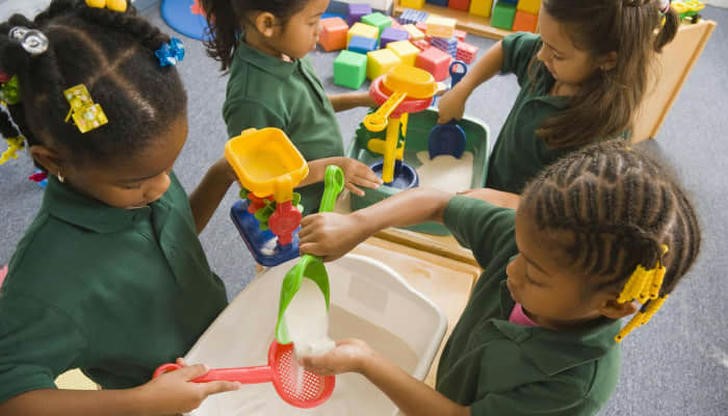As parents, we all want our children to succeed in school and life. One key skill that can help them achieve this is a strong memory. Good memory skills are essential for learning, problem-solving, and overall cognitive development. By helping our kids improve their memory, we’re setting them up for success in academics and beyond.
In this post, we’ll explore eight effective strategies that can help boost your child’s memory. These methods are simple, fun, and easy to incorporate into your daily routines. Let’s dive in!
1. Encourage Active Learning
Active learning is a great way to help children remember information better. Instead of passively listening or reading, active learning involves asking questions, discussing ideas, and engaging in hands-on activities.
Here are some ways you can promote active learning:
- Ask your child open-ended questions about what they’re learning
- Encourage them to explain concepts in their own words
- Use hands-on experiments or projects to explore new topics
For example, if your child is learning about plants, you could plant a small garden together and discuss how plants grow. This hands-on experience will help them remember the information much better than simply reading about it in a book.
2. Use Visualization Techniques
Visualization is a powerful tool for memory enhancement. By creating mental images or drawings, children can better remember facts and concepts.
Try these visualization techniques with your child:
- Encourage them to draw pictures related to what they’re learning
- Ask them to create a mental movie of a story they’ve read
- Use mind maps to connect different ideas visually
For instance, when learning vocabulary words, your child could draw a picture that represents each word. This visual connection can make it easier to recall the word’s meaning later.
3. Establish Consistent Routines
Having a structured routine can help children develop patterns that improve memory. Consistency in daily activities can make it easier for the brain to form and recall memories.
Consider implementing these routines:
- Set up regular study times each day
- Establish a consistent bedtime routine
- Create a structured mealtime schedule
For example, you might designate 4-5 PM as “homework time” every weekday. This consistent routine will help your child’s brain prepare for focused learning during this time.
4. Promote Physical Exercise and Outdoor Activities
Physical activity isn’t just good for the body – it’s great for the brain too! Regular exercise can improve cognitive function and memory in children.
Here are some ways to incorporate more physical activity:
- Encourage your child to play outside for at least an hour each day
- Sign them up for a sports team or dance class
- Take family walks or bike rides together
Even simple activities like jumping jacks or running in place for a few minutes before studying can help boost brain function and memory.
5. Play Memory-Boosting Games
Games are a fun way to improve memory skills. Many games specifically target memory enhancement and can be easily incorporated into playtime.
Try these memory-boosting games:
- Classic card games like Concentration or Memory
- Puzzles, especially jigsaw puzzles
- Word and number recall games
You could make a game out of remembering items on a grocery list or play “I Spy” with objects in a room to practice visual memory.
6. Develop a Reading Habit
Regular reading is excellent for improving memory and comprehension. It exposes children to new vocabulary, ideas, and information, all of which exercise the brain’s memory functions.
To foster a love of reading:
- Set aside daily reading time
- Let your child choose books that interest them
- Discuss the stories together after reading
You might start a bedtime reading routine, spending 15-20 minutes each night reading together. Afterward, ask your child to recall their favorite parts of the story.
7. Teach Mindfulness and Deep Breathing
Mindfulness and deep breathing exercises can help children focus better and improve their recall abilities. These techniques can also help manage stress, which can interfere with memory formation.
Try these simple mindfulness activities:
- Practice “belly breathing” together for a few minutes each day
- Use guided imagery to help your child relax before bedtime
- Encourage your child to focus on their senses during everyday activities
For example, you could ask your child to close their eyes and describe what they hear, smell, and feel for a minute. This helps them practice focusing their attention, which can improve memory.
8. Incorporate Balanced Nutrition and Hydration
What your child eats can significantly impact their brain health and memory. A balanced diet rich in brain-boosting foods can help improve cognitive function.
Some brain-friendly foods include:
- Fatty fish rich in omega-3s (like salmon)
- Colorful fruits and vegetables
- Whole grains
- Nuts and seeds
Don’t forget about hydration! Drinking enough water is crucial for optimal brain function. Encourage your child to drink water regularly throughout the day.
Remember, every child is unique, and what works best may vary. The key is to make these strategies fun and enjoyable for your child. With patience and consistency, you’ll likely see improvements in your child’s memory over time

